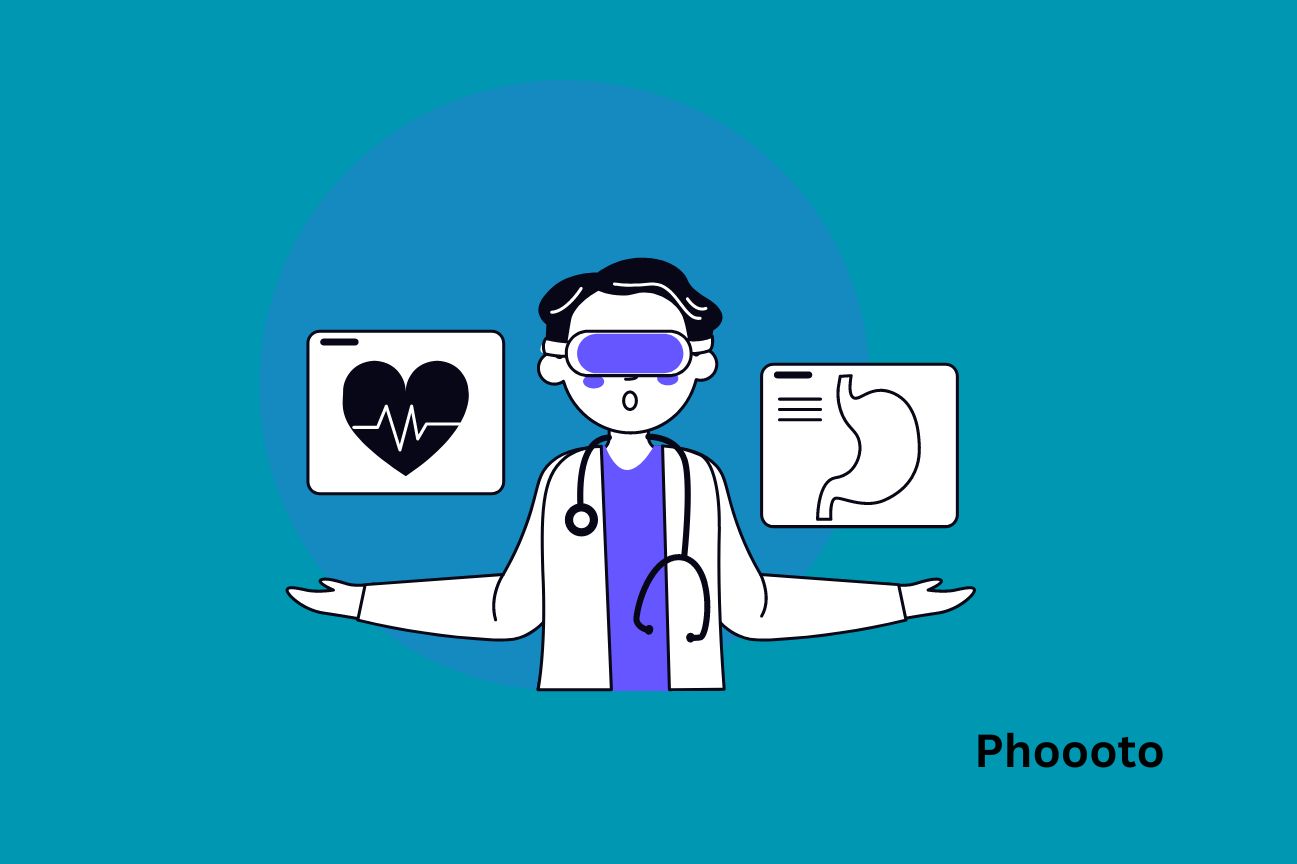Artificial Intelligence (AI) is revolutionizing healthcare, transforming patient care and diagnosis. By integrating AI into medical practices, the healthcare industry is experiencing unprecedented advancements in efficiency, accuracy, and personalization. This article explores the multifaceted impact of AI on healthcare, delving into its development, applications, benefits, challenges, and future prospects.
Development of AI in Healthcare
Historical Context
The concept of AI in healthcare dates back to the mid-20th century when early computer systems were developed to assist in medical decision-making. The evolution of machine learning algorithms and the availability of large datasets have since propelled AI into the forefront of medical technology.
Key Milestones
- 1950s: Introduction of early AI concepts and algorithms.
- 1970s: Development of the first medical AI systems, such as MYCIN for infectious disease diagnosis.
- 1990s: Advancements in machine learning and neural networks.
- 2010s: Surge in big data and deep learning technologies.
Technical Specifications
Machine Learning and Deep Learning
- Machine Learning (ML): Algorithms that enable computers to learn from data.
- Deep Learning (DL): Subset of ML using neural networks with many layers, ideal for complex pattern recognition.
Natural Language Processing (NLP)
NLP enables AI to understand and interpret human language, crucial for applications like electronic health records (EHRs) and patient interaction.
Robotics
AI-powered robots assist in surgeries, rehabilitation, and patient care, enhancing precision and efficiency.

Applications in Healthcare
Diagnostics
Medical Imaging
AI algorithms analyze medical images (X-rays, MRIs, CT scans) to detect abnormalities, significantly improving diagnostic accuracy.
Pathology
AI assists pathologists in identifying disease markers from tissue samples, enhancing the speed and precision of diagnoses.
Patient Care
Personalized Treatment
AI analyzes patient data to tailor treatment plans, ensuring personalized and effective healthcare.
Virtual Health Assistants
Chatbots and virtual assistants provide 24/7 support, answering patient queries and scheduling appointments.
Predictive Analytics
Disease Prediction
AI models predict disease outbreaks and patient risks, enabling proactive healthcare measures.
Patient Monitoring
Wearable devices equipped with AI monitor vital signs in real-time, alerting healthcare providers to potential issues.
Benefits of AI in Healthcare
Enhanced Accuracy
AI reduces diagnostic errors, improving patient outcomes and reducing healthcare costs.
Increased Efficiency
Automation of administrative tasks and data analysis frees up healthcare professionals to focus on patient care.
Cost Reduction
AI-driven efficiencies reduce operational costs, making healthcare more affordable and accessible.
Challenges and Limitations
Data Privacy and Security
Protecting patient data from breaches and ensuring compliance with regulations like HIPAA is a significant challenge.
Ethical Considerations
The ethical implications of AI in healthcare, including bias in algorithms and decision-making, must be addressed.
Integration with Existing Systems
Integrating AI with legacy systems in healthcare facilities can be complex and costly.
Latest Innovations
AI in Genomics
AI accelerates genetic research, enabling the discovery of new treatments and personalized medicine approaches.
Telemedicine
AI enhances telemedicine platforms, providing remote diagnostic capabilities and virtual consultations.
Drug Discovery
AI algorithms expedite the drug discovery process, identifying potential compounds faster and more accurately.
Future Prospects
Predictive and Preventive Healthcare
AI will enable a shift from reactive to proactive healthcare, focusing on disease prevention and early intervention.
Advanced Robotics
Future advancements in AI-powered robotics will further enhance surgical precision and patient care.
AI and Mental Health
AI will play a significant role in mental health care, offering tools for early detection and personalized treatment plans.
Comparative Analysis
AI vs. Traditional Methods
AI out
performs traditional methods in speed, accuracy, and efficiency, transforming how healthcare services are delivered.
AI vs. Human Diagnosticians
While AI offers superior data processing capabilities, human diagnosticians provide the necessary empathy and contextual understanding that AI currently lacks. The optimal approach combines AI’s analytical power with human judgment.
User Guides or Tutorials
Implementing AI in Healthcare Settings
Step-by-Step Guide
- Assess Needs: Identify areas where AI can provide the most benefit.
- Select Technology: Choose appropriate AI tools and platforms.
- Data Preparation: Ensure high-quality, annotated datasets are available for AI training.
- Integration: Seamlessly integrate AI systems with existing healthcare infrastructure.
- Training and Support: Provide comprehensive training for staff and ongoing technical support.
Best Practices
- Prioritize data privacy and security.
- Maintain transparency in AI decision-making processes.
- Continuously monitor and evaluate AI performance.
Case Studies
IBM Watson for Oncology
IBM Watson uses AI to provide oncologists with evidence-based treatment options, significantly improving patient outcomes and treatment precision.
Google DeepMind and Moorfields Eye Hospital
DeepMind’s AI system accurately diagnoses eye diseases from OCT scans, demonstrating AI’s potential to revolutionize diagnostic processes in ophthalmology.
Expert Insights
Dr. Eric Topol, Cardiologist and Digital Medicine Expert
“AI holds the potential to democratize healthcare, making high-quality care accessible to all, regardless of geographic or economic barriers.”
Dr. Fei-Fei Li, AI Researcher
“Integrating AI into healthcare is not just about technology; it’s about empowering clinicians and improving patient outcomes through collaboration.”
Conclusion
Artificial Intelligence is poised to revolutionize healthcare, transforming patient care and diagnosis. By harnessing the power of AI, the healthcare industry can achieve unprecedented advancements in accuracy, efficiency, and personalization. While challenges such as data privacy, ethical considerations, and system integration remain, the potential benefits far outweigh the hurdles. As AI continues to evolve, its role in healthcare will only expand, heralding a new era of medical innovation and patient care.
